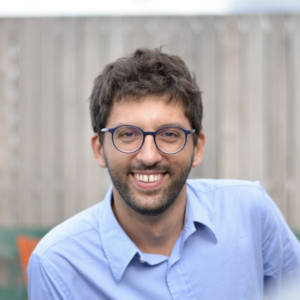I studied in Trieste, Italy, specialising in condensed matter. I couldn’t decide whether to become a theorist or an experimentalist until I came to Paris in 2012 and started a Master’s thesis in Jean Dalibard’s group at ENS. I fell in love with atom optics and have continued to work on it ever since. I did my PhD in the same group, building an experiment on ultracold Dysprosium gases from scratch. I then moved to Zurich, where I worked on cavity quantum electrodynamics with Bose-Einstein condensates in Tilman Esslinger’s group at ETH. I came back to Paris at the end of last year to work at Pasqal, a startup which is also using cold atom technologies.


